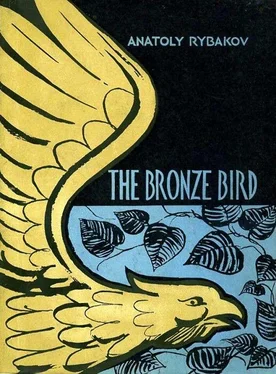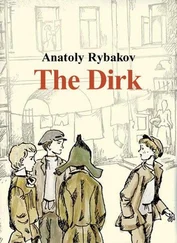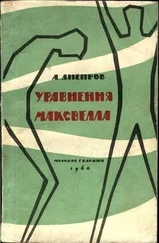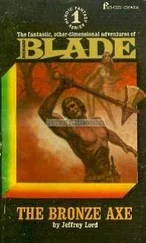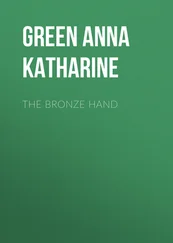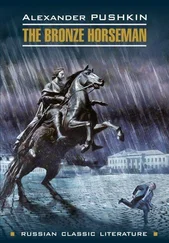Anatoly Rybakov - THE BRONZE BIRD
Здесь есть возможность читать онлайн «Anatoly Rybakov - THE BRONZE BIRD» весь текст электронной книги совершенно бесплатно (целиком полную версию без сокращений). В некоторых случаях можно слушать аудио, скачать через торрент в формате fb2 и присутствует краткое содержание. Город: Moscow, Год выпуска: 1956, Издательство: Foreign Languages Publishing House, Жанр: Детские приключения, Детектив, Исторические приключения, на английском языке. Описание произведения, (предисловие) а так же отзывы посетителей доступны на портале библиотеки ЛибКат.
- Название:THE BRONZE BIRD
- Автор:
- Издательство:Foreign Languages Publishing House
- Жанр:
- Год:1956
- Город:Moscow
- ISBN:нет данных
- Рейтинг книги:5 / 5. Голосов: 1
-
Избранное:Добавить в избранное
- Отзывы:
-
Ваша оценка:
- 100
- 1
- 2
- 3
- 4
- 5
THE BRONZE BIRD: краткое содержание, описание и аннотация
Предлагаем к чтению аннотацию, описание, краткое содержание или предисловие (зависит от того, что написал сам автор книги «THE BRONZE BIRD»). Если вы не нашли необходимую информацию о книге — напишите в комментариях, мы постараемся отыскать её.
THE BRONZE BIRD — читать онлайн бесплатно полную книгу (весь текст) целиком
Ниже представлен текст книги, разбитый по страницам. Система сохранения места последней прочитанной страницы, позволяет с удобством читать онлайн бесплатно книгу «THE BRONZE BIRD», без необходимости каждый раз заново искать на чём Вы остановились. Поставьте закладку, и сможете в любой момент перейти на страницу, на которой закончили чтение.
Интервал:
Закладка:
As a matter of fact, they were all hungry as wolves. And that tiny sandwich, which resembled cigarette paper, it was that thin, only whetted their appetites. The boys threw to the winds the tact that was necessary in relations with foreigners.
They ate the sandwiches as fast as the woman could make them. The man opened another tin of meat, then sardines and finally a tin of condensed milk. The boys made short work of all that, falling especially on the bread. People say foreigners eat little bread, but the boys were no foreigners.
By the embarrassed way the foreigner glanced into his rucksack and finally turned it inside out, the boys realized that all the eatables had been devoured. But they had already had their fill and were feeling languid and sleepy. In the camp, they had grown used to their after-dinner nap. Misha glanced at his "alarm clock" and said:
"We'll rest for about twenty minutes and then move on. Besides, it would be impolite to just walk away without warning."
Heavy with food, they lay down round the fire, and even Long-shanks made himself more comfortable.
Chapter 20
THE RUMANIAN WOMAN AND THE CUBAN
"Komsomol," the foreigner smiled, pointing to the boys' Y.C.L. badges. "C.Y.I.* International..." (Communist Youth International)
"Yes," Misha replied not without a note of challenge in his voice and mispronouncing his words carefully, probably thinking that in that way the foreigner would understand him better, "we Komsomol."
"Good, good, Komsomol, that is good. International, that is good."
"Are you travellers? Voyage?"
"Oh, yes, yes," the foreigner nodded, "we travellers. Walk, ride. Russia good country, beautiful country."
"You like it here?" Genka asked, patting his well-filled tummy.
"Yes, yes, we like very much. Very good."
"How is your Lord* Curzon getting along?" Genka asked pertly.
The foreigner wrinkled his face squeamishly.
"Oh, Lord Curzon... He bad-Lord Curzon very bad. Poh, Curzon... Curzon, he is bad."
"So you say Curzon is bad?" Misha asked.
The foreigner nodded.
"Ultimatum, Tory... Imperialism..."
"Is Mussolini good?"
"Mussolini," the foreigner shook his head energetically, "worse than all. Fascist... Communist, Socialist, he kill... Dictator... Worse than all."
"Why do you have people like Curzon and Mussolini?" Misha asked and, seeing that the foreigner did not understand him, waved his arm emphatically, "Curzon, Mussolini, get out! Down with them!"
The foreigner nodded happily.
"Oh, yes. Of course. Down with Mussolini, down. Curzon- down."
"Then throw them out," Misha said.
The foreigner thoughtfully nodded and then, slowly choosing his words, said:
"Time. Revolutions we not make, revolutions come."
With a serious and meaningful expression, which was somewhat strained because of the necessity of having to remember Russian words, he continued, "Crisis, unemployment, war. For proletariat- not good. Communist-agitation... Capitalist him throw in prison." He suddenly laughed and seized himself by the wrists. "Shackles, prison!" Wrinkling his face in a funny way, he added, "Not good- prison."
While the man spoke, Misha glanced at the white lines on the woman's wrists.
The foreigner intercepted his glance, laughed and pointed to the woman's hands.
"Shackles-three years. Prison-ten years." The woman was washing the cups.
The boys did not at once grasp what the foreigner meant. Ten years of prison? Three years of shackles? What did the man mean? Slava was the first to regain his speech.
"Are you a Communist?" he asked the woman. Smiling, the foreigner repeated Slava's question in a language the boys never heard before.
The woman laughed, jabbed a finger at her chest and said: "Communist." Then pointing to the man, added, "Communist," then again pointing to herself, she said, "Rumanian. Cuba, America," she nodded in the direction of her companion.
Stunned, the boys fell silent. These people were probably delegates to the Comintern. There had just been a congress. They wore workingmen's clothes. The man had a kind, clever face, a friendly smile, a strong chin. The woman's face also showed will-power. And she had grey hair and wrinkles.
"That means you're from Cuba?" Misha asked.
"Cuba, Cuba," the man burst out laughing.
"Capablanca," Genka said.
"Oh, yes, yes. Capablanca, champion."
"Is it good in Cuba?"
"Good, very good." The Cuban pointed to the ground. "Walk on ground good." Then he ran his hand around his neck as though tracing a loop, and pointed to a tree. "Hang on tree, bad very bad." He laughed. "I must hang, I run away."
The boys gazed at the Cuban with admiration. This stout, merry man, who looked so ordinary, had been condemned to death, had escaped from the hangman's noose and had managed to reach Russia. What fortitude, what courage he must have! And yet here he was sitting on the bank of the Utcha, opening tins and laughing as though all that was nothing. These were real people! The boys would have liked to stay longer and talk to them, but they had to go and look for Igor and Seva. They rose to their feet and began making their farewells.
"Good-bye," they said, shaking hands with the Cuban.
"If you follow the bank, you won't miss getting to our camp," Genka added.
The Cuban did not understand what Genka said and only smiled merrily in reply.
The boys showed special regret as they shook hands with the Rumanian woman: there had been shackles on those hands.
Then they went down the bank to their boat.
Nobody told them what to do, but each knew what should be done. They put their entire stock of food into one bag, leaving only the bread for themselves: foreigners hardly ate it.
The Cuban and the Rumanian woman stood watching from the bank, without grasping what the boys were about. Misha hurried his friends: perhaps the Cuban was smiling because he and his friends had so much food and had left after eating all that he and his companion had.
At last, the bag was ready and Misha carried it out of the boat and placed it at the feet of the Cuban and the 'Rumanian woman. At first the foreigners did not understand what the boys were doing, but when they realized what their intention was, they began to wave their arms in protest.
"We not need, not need. Take back, we not need."
But Misha had already pushed off the boat and jumped into it.
The Cuban lifted the bag and holding it out to the boys walked along the bank after the boat. Genka and Slava pulled hard on their oars. The boat rapidly nosed its way to the middle of the river.
The Cuban stopped at the riverside with the bag still in his hands. He was smiling confusedly and shaking his head. The small, red-haired Rumanian woman stood motionless, attentively gazing after the boys with a serious expression on her face. The slanting shadow cast by a white birch fell across her thin shoulders.
Misha raised his arm and cried:
"Red Front!"
Silently, the woman raised her arm with the fist clenched.
The Cuban laughed, put the bag on the ground and also raised a clenched fist.
"Red Front! Good-bye! Red Front!"
Chapter 21
THE RAFT
The Rumanian woman, the Cuban and their tiny hut disappeared from view and once again the boat moved past woods, fields, meadows, glades, gullies and windmills.
Misha raised himself and yelled:
"There's the raft!"
On a small sand-bank lay a raft, a broken-down structure of short, thin logs held together with bark, torn rope and rusty wire. The fastenings had snapped and the logs had scattered in different directions. In the state it was in, the raft was useless.
"It's Senka's raft," Longshanks said.
"Are you sure?"
Читать дальшеИнтервал:
Закладка:
Похожие книги на «THE BRONZE BIRD»
Представляем Вашему вниманию похожие книги на «THE BRONZE BIRD» списком для выбора. Мы отобрали схожую по названию и смыслу литературу в надежде предоставить читателям больше вариантов отыскать новые, интересные, ещё непрочитанные произведения.
Обсуждение, отзывы о книге «THE BRONZE BIRD» и просто собственные мнения читателей. Оставьте ваши комментарии, напишите, что Вы думаете о произведении, его смысле или главных героях. Укажите что конкретно понравилось, а что нет, и почему Вы так считаете.
